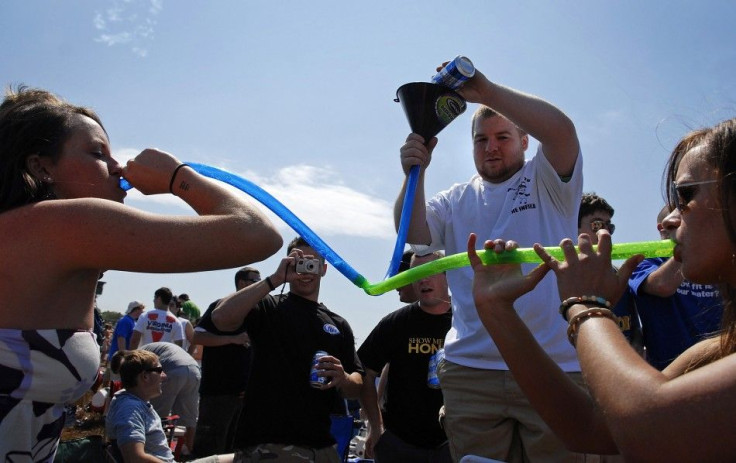Discussing Your Drunken Escapades on Facebook? You May Have a (Drinking) Problem

College students who discuss their drunken escapades on Facebook may be more likely to have a drinking problem, a new study suggests.
Researchers at the University of Wisconsin- Madison and the University of Washington in Seattle studied the public Facebook profiles of more than 300 undergraduates at both schools.
The profiles were divided into three categories: those that did not have any references to alcohol, those that referred to alcohol but not to getting wasted, and those that contained phrases such as getting wasted and getting drunk.
Students were then asked to complete the Alcohol Use Disorders Identification Test (AUDIT). Of the 307 students whose profiles were observed, 224 took the survey.
Students whose profiles fit in the third category were more likely to indicate drinking problems on the AUDIT survey, researchers found.
Our study illustrates underage college students who referenced dangerous drinking habits, such as intoxication or blacking out, were more likely to score into the problem-drinking category of a clinical screen, lead author and UW pediatrics professor Megan Moreno said in a statement.
Results were published online in the Archives of Pediatric and Adolescent Medicine.
Resources for treating alcohol dependency issues vary from psychological counseling to medication to alternative medicines.
Alternative medicines recommended by the Mayo Clinic include yoga, meditation, and even acupuncture.
The National Institute on Alcohol Abuse and Alcoholism (NIAAA) has recommendations for people who want to cut back on their drinking, such as setting a drinking limit and keeping a drinking diary.
Moreno had a suggestion for parents and other older figures who want to help students who drink too much.
Parents and college-health providers who note references to problem drinking on the Facebook profiles of adolescents should discuss drinking habits with their children and parents, she said.
© Copyright IBTimes 2025. All rights reserved.





















